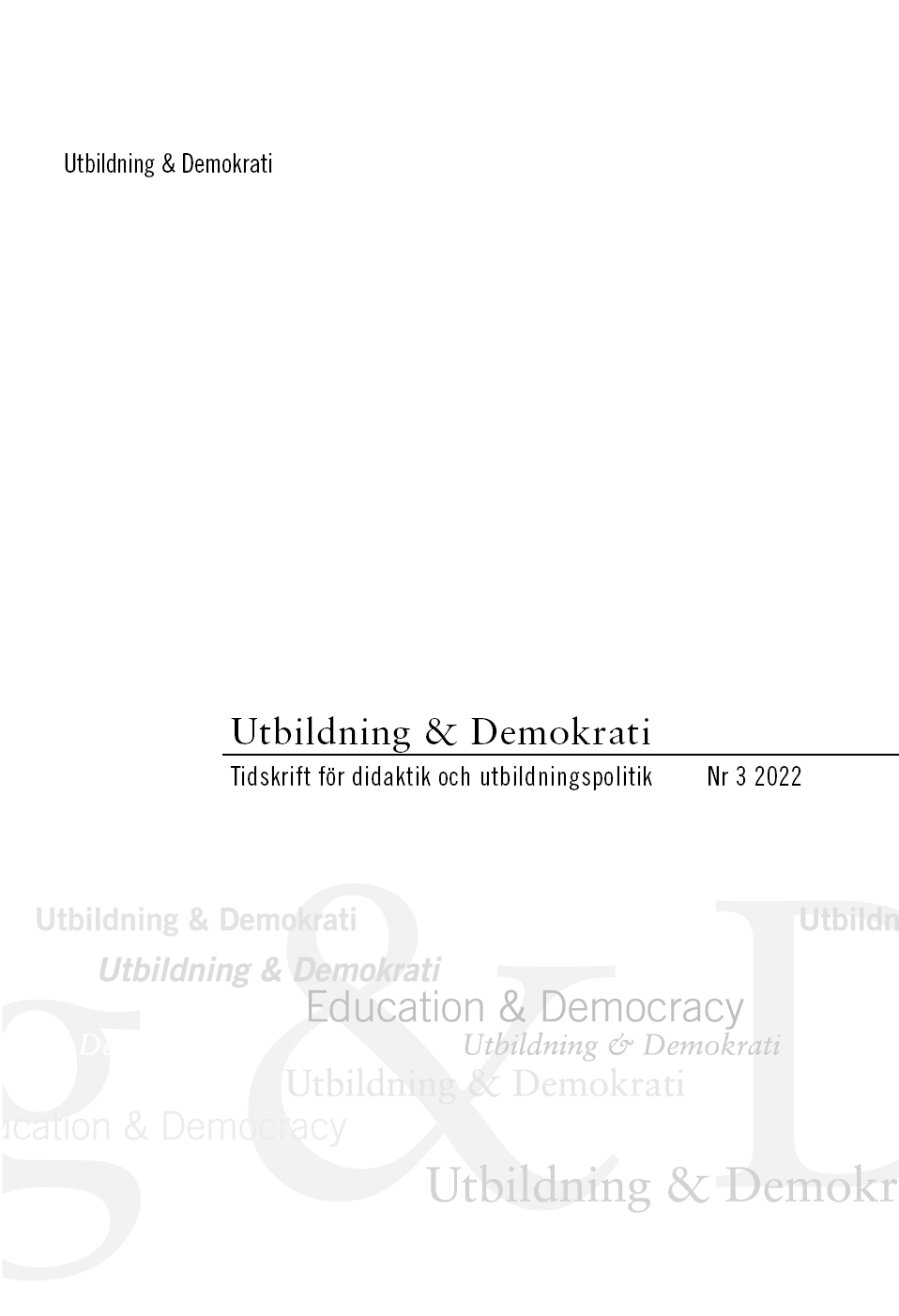Undervisningspraktiker i rörelse
1940-talets folkskollärare som läsundervisningens förändringsagenter
DOI:
https://doi.org/10.48059/uod.v31i3.2086Nyckelord:
reading and literature teaching, progressivism, Rosenblatt, educational history, black box of schoolingAbstract
Teaching practices in transition: Swedish primary teachers as agents of change in reading education in the 1940s. This article deals with primary teachers’ views on reading and literature teaching, as reflected in an archive consisting of more than 600 accounts of teaching experiences collected in 1946. By a close reading of a directed selection of 52 of these accounts – of which 14 are detailly presented – we can draw three conclusions: 1) We argue that many of the teachers regarded mother tongue as something more than just a “skill subject”; 2) The material indicates that mother tongue teaching was undergoing changes in a “progressive” direction at a time that previous research has regarded as a decline period for such ideas; 3) The analysis shows that the teachers both identified structural obstacles relating to these changes and used the obstacles as a point of departure for change. Altogether a complex picture emerges that can be highlighted as an example of teachers’ agency with relevance also to the current debate on reading and literature teaching in a democratic society.




